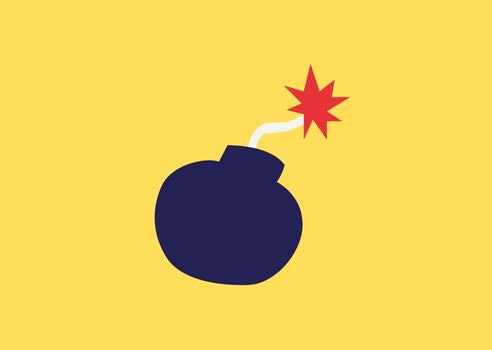Word count: 750 words
Reading time: About 3 minutes
It’s hard to feel much joy when you’re reading really bad writing. But I have an idea that might just help turn your frown upside down…
The managing editor couldn’t have been any nastier. “We’ve had a bomb threat,” he said in an email to the newsroom of about a hundred reporters, editors and photographers. “If you feel the need to leave, please inform your supervisor and your pay will be docked accordingly.”
That this incident — which is true — occurred 25 years ago, doesn’t make it any less outrageous. (The next sound was the bleep of many sets of fingers hitting the “print” button so they could submit the email to WorkSafe. What else did the editor expect a group of reporters to do?)
I couldn’t believe that my company was prepared to be so scornful of its employees. But, then again, that was the kind of dysfunctional management in which the newspaper I worked for specialized.
The only thing that kept me at the job was that I loved editing and couldn’t imagine having to do something else for a living. I was also lucky enough to have the support of a management consultant who worked against considerable odds to make things better. I learned a lot from Ken and perhaps one of his most useful lessons was that people can learn just as much from a really bad boss as an incredibly good one.
So, even while I loathed my bosses, I delighted in the apparent contradiction of Ken’s advice. But think about it. It’s true! You can learn from the horrible just as much as you learn from the good. And this applies to more than just management. I think it also relates to reading.
Right now I’m reading a really bad book. (I won’t share the name so as not to embarrass the author. Or, possibly, myself, for having selected such an atrocious work.) In my defense, I can tell you I’d read an earlier book by the same author and while it had some clear flaws, I thought it also displayed many redeeming features.
The current one, however, has nothing to recommend it. A day ago, I felt like picking it up by the scruff of its neck and hurling it across the room. So why did I persist in reading? (Especially when I always tell people they should give up on books they don’t like. Life is too short to read books you really hate.) But here’s the truth: Yesterday, I remembered Ken’s management principle and took a deep breath. Even bad books have some lessons to teach us. Here’s what I think they are:
Bad writing makes us more conscious of the potential landmines facing every writer. Many people think of writing as hard but aren’t certain exactly what makes it so. And reading good writing isn’t always revealing. In fact, good writers — like good figure skaters and good actors and good managers — make the painfully difficult look breathtakingly easy. But when you watch someone who is bad at a job, you get a better sense of exactly the kinds of things you need to do better. In the novel I’m reading right now, I’m learning about the difficulty of conveying day-to-day activity. Good writers make just about every sentence meaningful. Bad ones waste effort on recording every cup of tea their characters swallow.
Bad writing highlights the kinds of mistakes we don’t want to make. It’s one thing to know we shouldn’t overuse adjectives. It’s another to read a plethora of sentences like this one: “The wearily handsome, nervous, stubble-chinned man slowly and carefully got out of bed when he heard the soft, mysterious sound of footsteps in his apartment.” (Thank goodness, this wasn’t from the book I read; I found it on the Internet as an example of really bad writing.) The horror of having to read such dreck yourself is so much more instructive than simply learning a guideline, don’t you think?
Finally, bad writing is a reminder that good work always requires effort. Few worthwhile things in life come for free. You don’t get in shape by lying on the couch watching TV and you don’t become good at playing the piano by listening to DVDs. Nor do you become a good writer simply by typing.
Just as the cold and rain of winter helps us better value the warmth of summer, so, too, a little bad writing helps us better appreciate the truly good.
Has some bad writing ever helped you? Please comment below. (If you don’t see the comments box, click here and then scroll to the end.)


